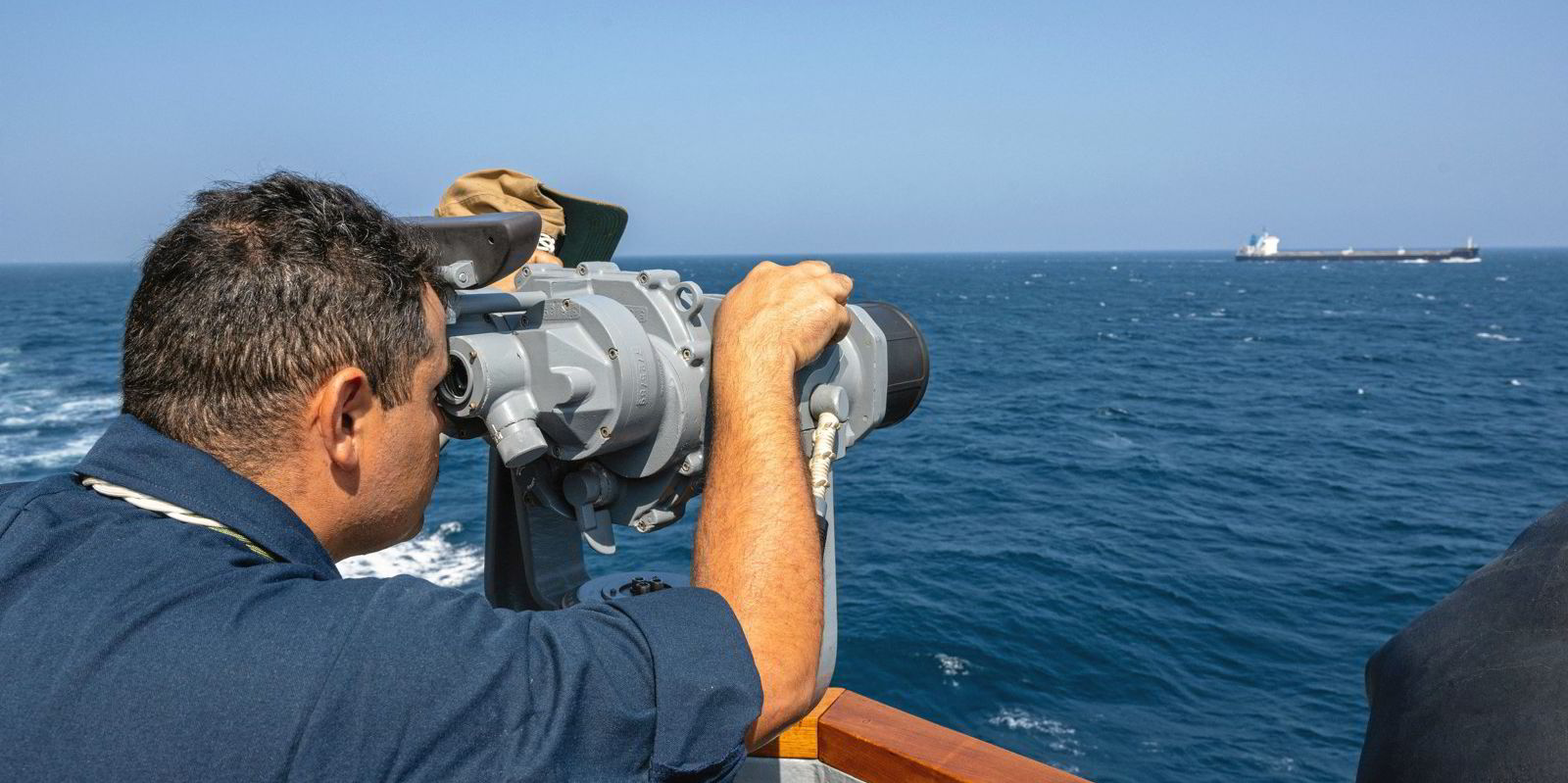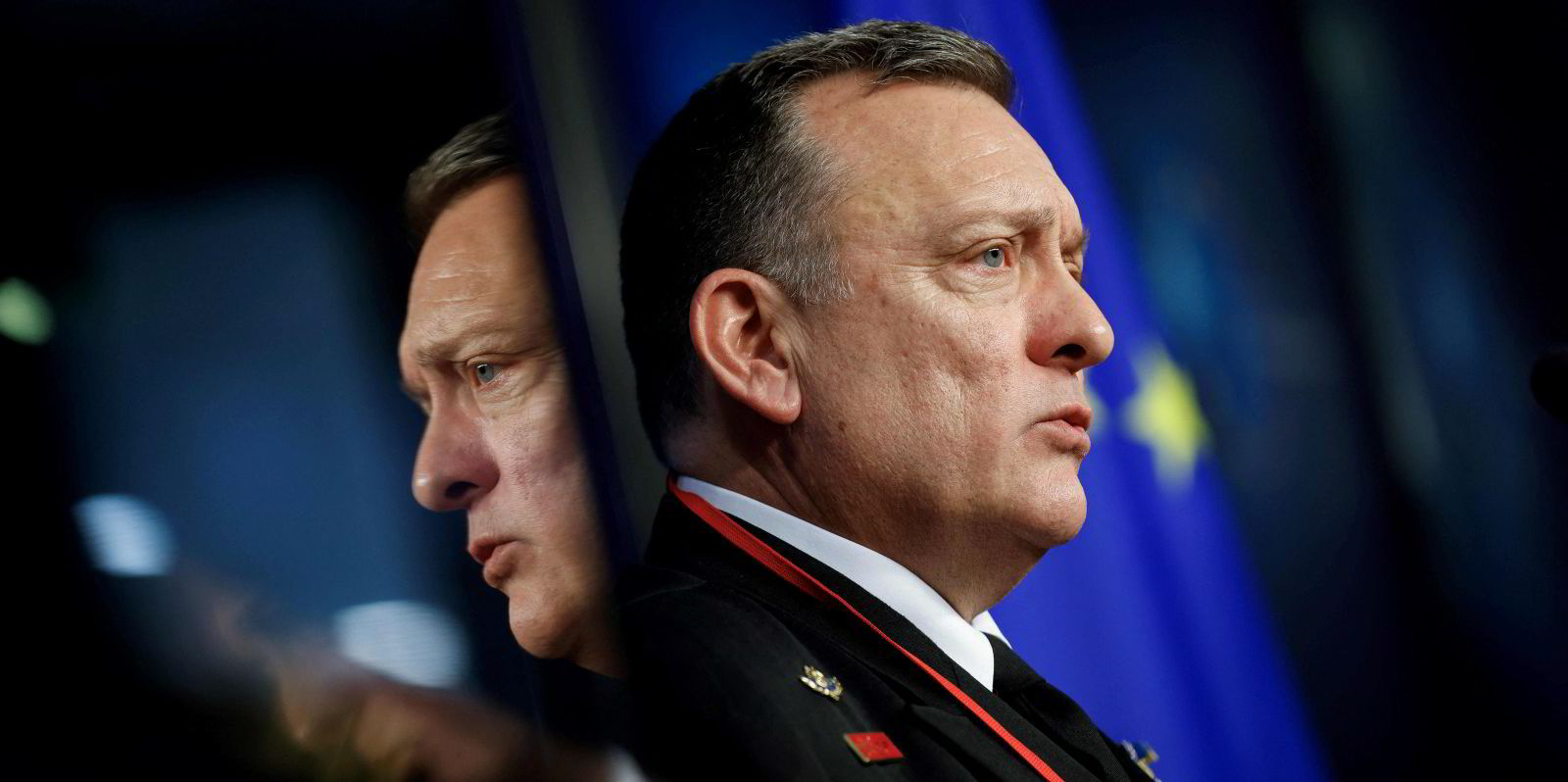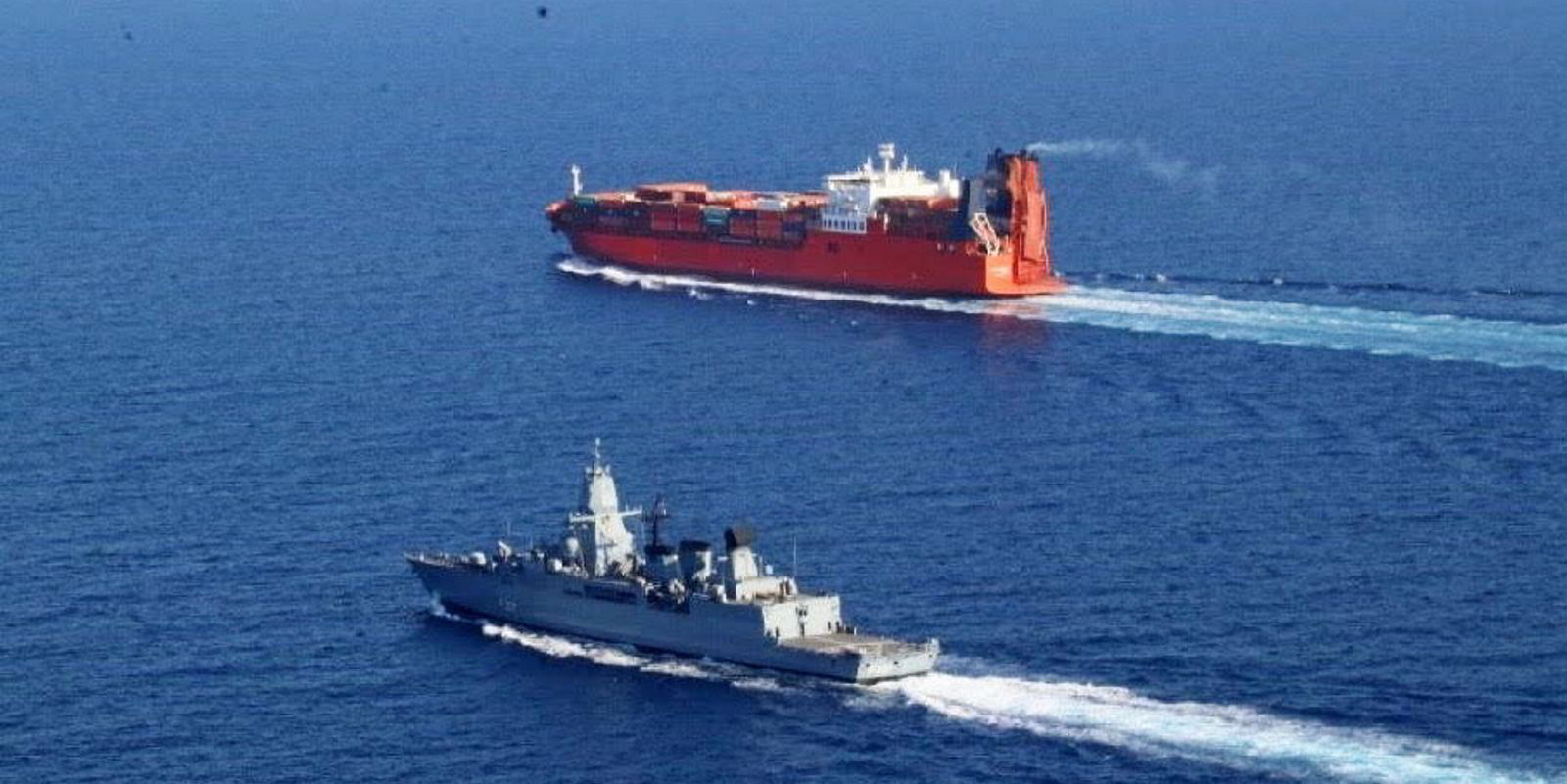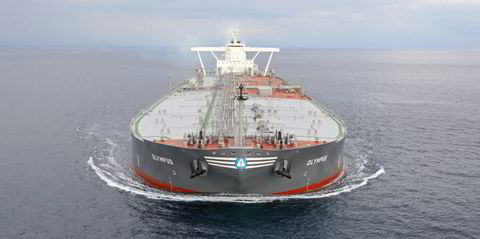The US military revealed a Houthi attack on a US-registered Maersk ship that was foiled by a warship before possible impact.
The “likely” target of the inbound anti-ship ballistic missile (ASBM) launched from Houthi territory in Yemen early on Tuesday was the “US-flagged, US-owned… MV Yorktown,” US Centcom said in a post on X.
The only vessel matching that description is the 2,500-teu Maersk Yorktown (built 2004) — a container ship listed in the fleet of Maersk Line Ltd-USA.
The last visible AIS trace of the Maersk Yorktown before its signal was switched off about 35 hours ago shows the ship in Djibouti.
According to Centcom, the Houthi attack took place at about 1:00 GMT on 9 April, as the Maersk Yorktown was sailing the Gulf of Aden, accompanied by the US warships USS Mason and USS Laboon.
“It was determined the ASBM presented an imminent threat to U.S., coalition, and merchant vessels in the region,” US Centcom said, adding there were no injuries or damage to any ships involved in the incident.
Houthi commanders have yet to confirm whether they have attacked the Maersk Yorktown or any US warships in the region.
On the other hand, no Western source has confirmed separate Houthi claims made on Sunday, stating that they targeted two MSC Mediterranean Shipping Company ships sailing far off the coast of Yemen in the Indian Ocean and the Arabian Sea. This would mark the Houthis’ first attempted strike at such a significant distance.
The Yemeni rebel group has attacked nearly 90 commercial ships sailing off its coast since mid-November through drones, missiles, attempted boarding attempts and one hijacking.
As a result of these attacks, one ship has sunk and three seafarers and 10 Houthi fighters were killed. Western air force strikes on Houthi-controlled territory in Yemen have also caused an unknown number of victims.
The Houthis claim to be targeting only ships associated with Israel, the US and the UK to force a stop to the war against the Palestinian Hamas group in Gaza.
Their attacks, however, have become indiscriminate over time — whether by mistake or design.
The Houthis are backed by Iran. European Union foreign policy chief Josep Borrell said on Monday, however, that the Yemeni group has become increasingly autonomous from Tehran in its decision-making and described the relation between the two players as one of “convenience”.






